April 14, 8:00 am - 11:10 am
Join us for further case studies that elevate the nuanced controversies of how race, racism and racial categorization are used in medicine both historically and today and how this context and relationship to evidence has implications for equity.
Agenda
| 8:00-8:10 am |
Welcome and Introductory Remarks |
| 8:10-8:35 |
Case Study 2: Race Based Diagnosis-GFR |
| 8:35-9:30 | Moderated Discussion Moderator: Kirsten Bibbins-Domingo, PhD, MD Joshua Adler, MD Cynthia Delgado, MD Vanessa Grubbs, MD Neil Powe, MD, MPH, MBA Stephen Richmond, MD |
| 9:30-9:40 | Break |
| 9:40-10:10 | Case Study 3: Race, Genetic Ancestry, and Disease Risk Flash Talks Ryan Hernandez, PhD Elad Ziv, MD |
| 10:10-11:00 | Moderated Discussion Moderator: Aimee Medeiros, PhD Denise M. Connor, MD Shoumita Dasgupta, PhD Ryan Hernandez, PhD Aleksander Rajkovic, MD, PhD Elad Ziv, MD |
| 11:00-11:10 | Closing Comments |
Flash Talk Speakers
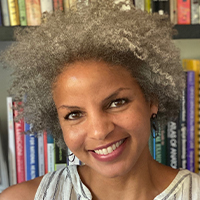
Vanessa Grubbs, MD
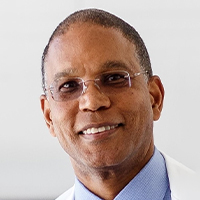
Neil Powe, MD, MPH, MBA
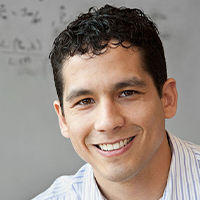
Ryan Hernandez, PhD
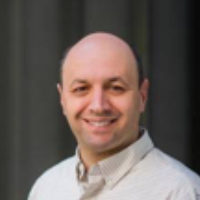
Elad Ziv, MD
Vanessa Grubbs, MD
Dr. Vanessa Grubbs is a nephrologist and a writer. She completed undergraduate and medical degrees at Duke University and internal medicine, primary care residency at Highland General Hospital in Oakland, California. She went on to complete a masters in public health from University of California, Berkeley and general medicine clinical research and nephrology fellowships at University of California, San Francisco (UCSF). After completing the UCSF nephrology fellowship in 2009, she maintained a clinical practice and research program at San Francisco General Hospital until 2019 at which point she chose to leave academia to focus on writing. Her book, HUNDREDS OF INTERLACED FINGERS: A Kidney Doctor’s Search for the Perfect Match (Amistad, 2017), tells her story of becoming a kidney donor, then nephrologist, and her experiences with ethical and controversial topics in nephrology.
Neil Powe, MD, MPH, MBA
Professor, Medicine, UCSF
Dr. Powe serves as leader of the University of California San Francisco Medicine Service at the Priscilla Chan and Mark Zuckerberg San Francisco General Hospital, a leading Medicine department in a public hospital with strong basic, clinical and health services research programs focused on major diseases affecting diverse patients locally, nationally and globally. His interests are in improving discovery, education, clinical practice and organizational effectiveness in medicine, enhancing scholarship and multidisciplinary collaboration, and developing future talent and leadership in the health professions. He has a particular interest in cultivating young scientists who are addressing major problems in science, health and health care delivery.
His primary intellectual pursuits involve kidney disease patient-oriented research, epidemiology, disparities, and outcomes and effectiveness research. His research unites Medicine and Public Health with the goals of saving and improving quality of human lives. It involves the knowledge of fundamental discoveries in biology and clinical medicine to advance the health of patients and populations affected by kidney disease.
Dr. Powe earned his medical degree at Harvard Medical School and his master’s in public health at Harvard School of Public Health. He completed residency, was a Robert Wood Johnson Clinical Scholar and completed his master’s in business administration at the University of Pennsylvania.
Ryan Hernandez, PhD
Associate Professor, Bioengineering, UCSF
Dr. Ryan Hernandez’ research focuses on computational genomics and complements the department’s emerging strengths in quantitative sciences and genomics: First, he seeks to characterize the patterns of genetic variation within and between populations using large-scale genome resequencing data. A second branch of research in his lab focuses on developing novel population genetic simulation techniques. Such simulations are used to lend insight into the plausible evolutionary forces that have shaped patterns of genetic variation, including the implications of complex interactions among selected alleles in non-stationary demographic environments. His third branch of research seeks to exploit population genetic models of demographic history and natural selection to interrogate the genetic basis of disease. By capitalizing on recent theoretical advances, Dr. Hernandez is constructing models of population dynamics that will utilize genomic re-sequencing data to discover novel regions of the genome that underlie genetic susceptibility to disease and drug response.
Elad Ziv, MD
Professor, Medicine, UCSF
Elad Ziv is a Professor of Medicine at UCSF, a general internist and a physician-scientist whose research focuses on understanding cancer from susceptibility, to progression, to response to therapy. His research uses a human genetics approach and is particularly focused on studying populations who are traditionally underrepresented in medical research.
Host and Moderators
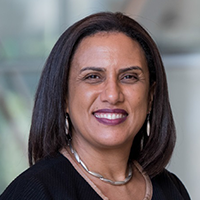
Kirsten Bibbins-Domingo,
PhD, MD, MAS

Aimee Medeiros, PhD
Kirsten Bibbins-Domingo, PhD, MD, MAS
Vice Dean for Population Health and Health Equity
Professor and Chair, Epidemiology and Biostatistics
Lee Goldman, MD Endowed Chair and Professor of Medicine at UCSF
Kirsten Bibbins-Domingo, PhD, MD, MAS is the Professor and Chair of the Department of Epidemiology and Biostatistics, and the Lee Goldman, MD Endowed Chair and Professor of Medicine at the University of California, San Francisco. She is the inaugural Vice Dean for Population Health and Health Equity in the UCSF School of Medicine. She co-founded the UCSF Center for Vulnerable Populations at Zuckerberg San Francisco General Hospital that focuses on actionable research to increase health equity and reduce health disparities in at-risk communities. She is one of the Principal Investigators for the UCSF Clinical and Translational Sciences Institute, and she leads the newly launched UCSF COVID Community Public Health Initiative.
Dr. Bibbins-Domingo is a general internist and cardiovascular epidemiologist whose scholarship includes observational epidemiology, pragmatic trials, and simulation modeling to examine clinical and public health approaches to prevention in the US and globally. She previously served on and led the US Preventive Services Task Force from 2010-2017. She is an inducted member of the American Society for Clinical Investigation, the Association of American Physicians, and the National Academy of Medicine.
Aimee Medeiros, PhD
Associate Professor of History of Health Sciences, UCSF
Aimee Medeiros is an Associate Professor and Director of the History of Health Sciences Program at UC San Francisco and an affiliated faculty of the Center for Science, Technology, Medicine & Society at UC Berkeley. Her work focuses on the reciprocity between diagnoses, preventive care measures, and societal expectations of the body in medicine. Her research areas include the history of pediatrics, race and medicine, history of pharmaceuticals, and twentieth-century therapeutics in the U.S.
Panelists

Josh Adler, MD

Denise M. Connor, MD
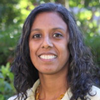
Shoumita Dasgupta, PhD
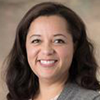
Cynthia Delgado, MD

Aleksandar Rajkovic, MD, PhD

Stephen Richmond, MD
Josh Adler, MD
Chief Clinical Officer, UCSF Health
Vice Dean for Clinical Affairs, UCSF School of Medicine
Dr. Josh Adler is Chief Clinical Officer, UCSF Health and Vice Dean for Clinical Affairs, UCSF School of Medicine. Prior to taking his current position, he served as Chief Medical Officer at UCSF Medical Center for six years, and served for seven years as the Medical Director of Ambulatory Care at UCSF. Dr. Adler is a practicing internist and professor of clinical medicine at UCSF.
As Chief Clinical Officer, Dr. Adler oversees the overall coordination and clinical integration of care across the entire health system and is responsible for faculty practice operations, is accountable for quality and safety of care delivered across the system, leads the health system funds flow program, and oversees population health, clinical resource management, compliance, medical staff affairs, clinical innovation and risk management. In addition, he is responsible for managing the UCSF Health network of clinically integrated physicians. As Vice Dean, he has a direct relationship to the clinical department chairs to ensure the alignment of the clinical, research and education missions of UCSF and to ensure physician involvement in operational decision making.
Dr. Adler earned a medical degree at UC San Diego Medical School and completed a residency in internal medicine at UC San Francisco, followed by a chief resident year at the San Francisco Veteran Affairs Medical Center. In the VA system, he served as Assistant Chief of Medicine, Assistant Chief of Staff and Chief Medical Officer of the six-hospital Sierra Pacific VA Network.
Denise M. Connor, MD
Associate Professor, Clinical Medicine, UCSF
Denise M. Connor, MD is an Associate Professor of Clinical Medicine at the University of California, San Francisco (UCSF) and Gold-Headed Cane Endowed Teaching Chair in Internal Medicine with her clinical home in the Faculty Hospital Medicine Division at the SFVA, a vital part of San Francisco’s safety net. Dr. Connor earned her MD at the University of Pennsylvania, came to UCSF for residency, where she took part in the Health Equities: Academics and Advocacy Training Program, and joined the faculty after chief residency. Her scholarly work focuses on designing curricula to teach clinical reasoning with the aims of emphasizing the critical roles of patients, families and interprofessional colleagues in the reasoning process, as well as bringing an equity lens to diagnosis. She designed and leads a longitudinal clinical reasoning thread with a capstone Diagnostic Reasoning course for pre-clerkship medical students, and has developed numerous workshops on clinical reasoning for residents and faculty. Dr. Connor is committed to promoting diversity, equity and inclusion in medical education, and was recently named the first Director of UCSF’s Anti-Oppression Curriculum—she is honored to collaborate with others across campus and in our community to elevate the School of Medicine’s emphasis on justice, equity, and anti-oppression across the entire four-year curriculum.
Shoumita Dasgupta, Ph.D.
Professor, Department of Medicine, Biomedical Genetics Section
Assistant Dean, Admissions
Director, Graduate Program in Genetics and Genomics
Boston University School of Medicine
Shoumita Dasgupta, Ph.D., is a scientist educator whose significant scholarly contributions center around inclusive curriculum design, teaching, and service. She is a Professor of Medicine and an Assistant Dean of Admissions with a demonstrated history of working in a diverse and inclusive higher education environment. Dr. Dasgupta has leveraged her expertise in basic and medical genetics and genomics, graduate education, and medical education to transform and advance the clinical, scientific, and ethical training of MD and PhD students at Boston University, nationally, and internationally. Her passion for genetics, genomic medicine, diversity and inclusion, and mentoring allow her to serve as a supportive and creative leader in the field. Dr. Dasgupta is a US Department of State Fulbright Specialist and is President of the Association of Professors of Human and Medical Genetics where she works with the National Human Genome Research Institute, the American College of Medical Genetics and Genomics, and others to promote initiatives in education, diversity, equity, and inclusion.
Cynthia Delgado, MD
Associate Professor, Medicine, UCSF
Dr. Delgado’s emerging research program is at a crossroads of chronic kidney disease, quality of life and outcomes related research. CKD is a major public health issue and its prevalence is expected to grow at an alarming rate in the United States. Frailty has been shown to be more common among individuals with CKD than among those with normal kidney function. There are no current therapies that adequately address frailty in CKD, resulting in a major burden of morbidity, mortality and cost. Dr. Delgado hopes to create a body of work that will lay the foundation for addressing these major outcomes.
Aleksander Rajkovic, MD, PhD
Medical Director and Chief of the Center for Genetic and Genomic Medicine
Professor, Pathology at UCSF
My work focuses on implementing precision medicine tools across UCSF and evaluate its clinical significance and validity. UCSF envisions a future where we will be able to predict and prevent disease in everyone and where every person has access to comprehensive molecular screening that includes genomics and other measurements in order to precisely predict, prevent, and treat their specific health conditions, including susceptibility to pandemics such as COVID-19, childhood and adult diseases which include cancer, diabetes, heart and neurological diseases. It is our vision that preventive precision medicine that incorporates genomics, epigenomics, metabolomics and other advanced molecular tools can predict and prevent vast majority of human disease. To this end we are building computational, analytical, and other tools to implement our vision.
As a first step, we have launched the pilot Whole Genome Sequencing Program for all to evaluate its utility in clinical and research setting. By integrating data from the electronic health record, biological samples stored in our biobank, and other data sets for approximately 1,000 volunteers from the UCSF, we will immediately provide our patients with their predisposition to cancer and other actionable diseases as well as build analytics for continuous re-analysis to refine and provide novel predictions.
The UCSF genomic database will strive to match the diversity of UCSF patient population to ensure that precision medicine at UCSF serves our entire community and we have engaged community leaders to better understand cultural and racial barriers to our precision medicine efforts.
UCSF established first nationwide Preventive Genomics clinic to counsel and test individuals interested in learning about their genomes. UCSF is now one of the first institutions to offer whole genome sequencing in quest to return actionable results and better understand how the unknown 99% of the genome contributes to health. This clinic will serve as the nidus for our efforts to build molecular preventive care.
Stephen Richmond, MD
Clinical Assistant Professor of Medicine, Stanford Division of Primary Care and Population Health
Dr. Stephen Richmond is a family physician, educator, and heath justice advocate with specific interest in racial equity in medicine. He currently serves as a Clinical Assistant Professor of Medicine in the Stanford Division of Primary Care and Population Health. He completed his BA in Molecular & Cell Biology at UC Berkeley, MPH at Harvard T.H. Chan School of Public Health, and MD at David Geffen School of Medicine, UCLA. He is a graduate of the UCSF-SFGH Family & Community Medicine Residency Program. As a clinician, Dr. Richmond cares for individuals of all ages with a wide range of acute and chronic illnesses. He is especially passionate about providing high quality, evidenced-based care to underserved communities of color. As a researcher and educator, his interests broadly involve the intersection of race, racism, and medicine, with current projects focused on applications of Critical Race Theory to medical education and clinical care. He most recently served as the co-director of the Health Equity & Racial Justice Graduate Medical Education Pathway at UCSF and is presently involved in many ongoing advocacy efforts aimed at achieving structural change. Dr. Richmond has received multiple teaching awards for his work in the space of diversity, equity, inclusion & anti-oppression in medicine, and is a routine presenter and consultant in these areas.
